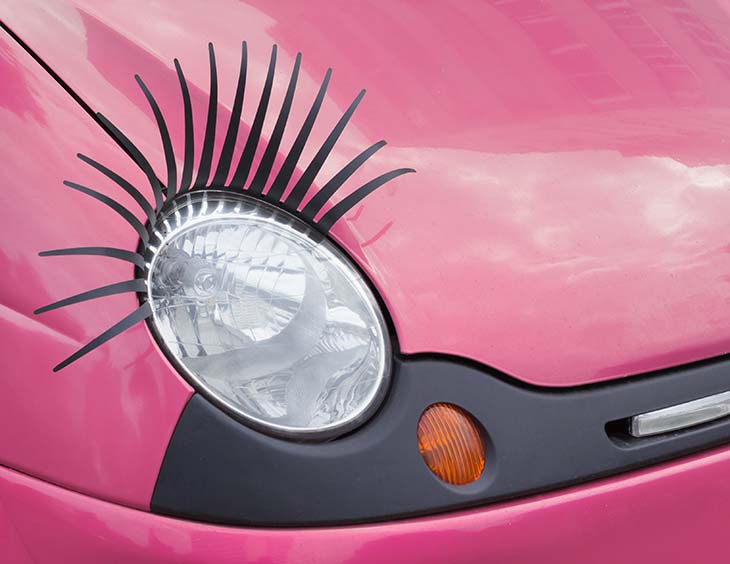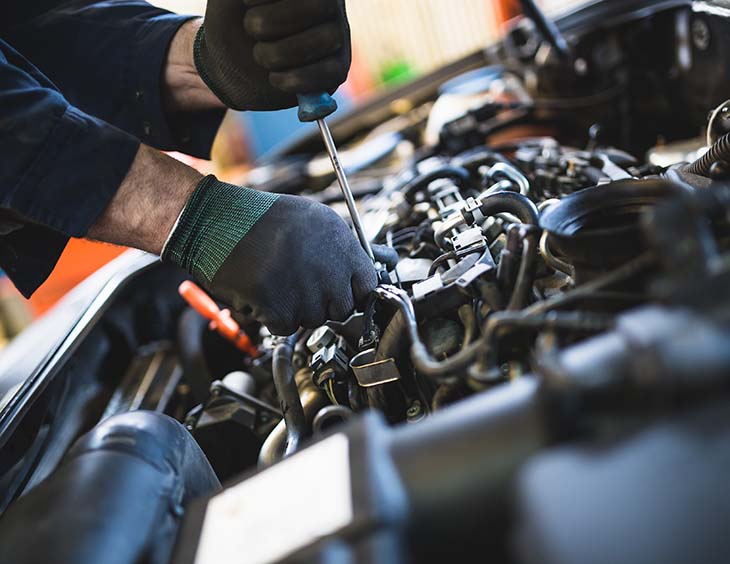When you buy a car, you're probably purchasing the most expensive item in your life (after your house).
Handing over such a large amount of money is never easy, especially if the asset is likely to lose some of its value over time.
And when it comes to cars, you can lose value fast if you’re not careful. But you shouldn’t let the fear of Depreciation stop you from buying your next vehicle.
However, if you’re concerned about depreciation, there are certain things you can do to help retain the value in your vehicle.
Here are our top tips for slowing car depreciation.
But first...what is depreciation?
In simple terms, depreciation is the amount of value an item such as a car loses as it ages. The older a vehicle is, the more value it will have lost from its initial starting price.
There are a few exceptions to this, such as antiques and Classic Cars as these gain value over time. But when it comes to new cars, they can lose their value as soon as they drive off the forecourt.
In fact, some new cars can lose up to 60% of their value in the first 3 years. But depreciation is not something to be scared of. You just need to be aware of how the value can change.
Depreciation and personal contract purchase (PCP)
With a PCP Agreement, your Monthly Payments are calculated based on the deprecation of the vehicle over the length of your contract.
By choosing a car that retains its value well, you can expect to pay lower monthly payments.
So, before you enter your finance agreement, it’s worth doing some research into which cars are best for retaining their value.
Buy a nearly new or used car
The easiest way to beat the drop in value is to buy a Nearly New or Used Car. Cars advertised as ‘nearly new’ are often stock cars and have only been used for test driving.
They’re usually between 0-2 years’ old and have very little mileage on the clock, meaning you can enjoy a car that feels brand new, without paying the full price.
And most importantly, buying a nearly new car means you avoid the instant depreciation of driving a brand-new car off the forecourt.
So, buying a nearly new car will allow you to take advantage of a fantastic vehicle, without losing too much of your initial investment.
Keep your colour choice simple

It may seem strange to say it but opting for a ‘standard’ car colour will make your car easier to sell.
Very few drivers want a bright pink or baby blue, so if you think you may want to change your car in a few years’ time, it’s best to keep it simple.
Watch your mileage
Part of the way depreciation is calculated is based on the wear and tear of the engine. Even today’s modern, efficient engines will still deteriorate over time.
Another thing about driving a lot is that you’re likely to pick up wear and tear. Be it small scratches or chips in the paintwork, or little scuffs and scrapes to the car’s interior upholstery.
A car’s value will be assessed on the overall quality of the vehicle. Driving fewer miles will help preserve that value. That’s why car leasing deals, such as PCP, set Annual Mileage limits.
So, by reducing the number of miles you drive, the longer you will preserve the car’s value.
Service your car regularly

Maintaining your vehicle is key to the car’s value. Having your car regularly serviced will:
1) ensure that everything is still running smoothly
2) provide evidence of the care you have taken with the car
Having your car serviced regularly can also alert you to potential issues further down the line. Repairing them quickly through a trusted mechanic, ideally, the main agent specialist ensures your car’s engine is regularly assessed for its quality.
When you do get your car repaired, you must ensure that you receive the paperwork detailing what work has been completed.
Stamps in the car’s service book are a good sign of a well-maintained vehicle, and any invoices for repairs or parts should be kept in the car’s history file.
Take good care
It’s easy to get lazy when it comes to maintaining your car. You might not want to wash it yourself, and trips to the local car wash are an annual affair.
And if you do spot any little chips or scratches to the bodywork, it’s tempting to just ignore them as minor inconveniences.
Instead, you should be taking steps to repair any cosmetic issues as soon as they arise. If you leave the damage, it could get worse over time.
The sooner you repair something, the less chance there is of it becoming a larger problem.
Avoid modifications
Adding modifications to your car, such as spoilers or wide wheels can affect the value of your car.
Even if you are doing it for cosmetic reasons, these additions can show that your car has been used by a ‘boy racer’ and affect the car’s overall mechanical condition.
Sell at the right time of year
Another thing that can impact the resale value of your car is the time of year you sell it. For example, if you have a 4x4 that’s built for the winter, then selling it in the summer may not be your best move.
And for convertibles, there’s of course an increased demand in the summer months - even if there’s no guarantee of sun in the summer, thanks to our soggy British climate.
Have a question about depreciation?
As an FCA approved finance provider, we're committed to empowering our customers with the information they need to make the right decision about their car finance journey.
If you want to discuss your requirements with an expert, simply get in touch and one of our friendly car finance specialists will call you to talk through your options.





 Facebook
Facebook Twitter
Twitter Instagram
Instagram LinkedIn
LinkedIn Youtube
Youtube